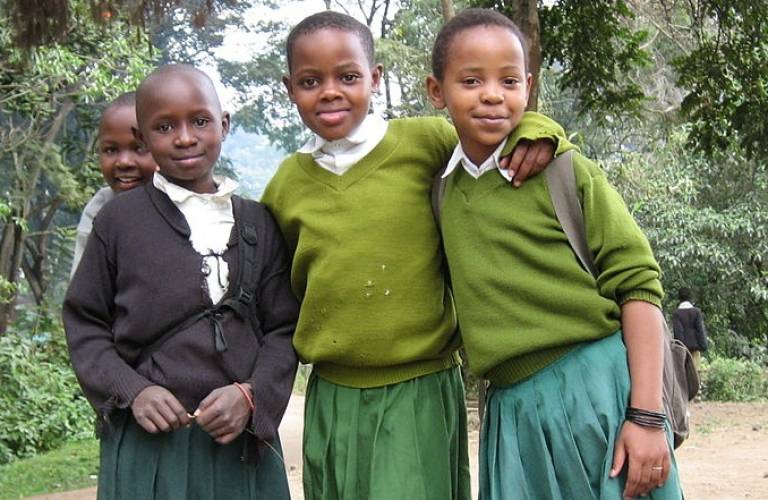Africa's girls: promoting equality and empowerment

12 December 2014
A series of projects at IOE, UCL's Faculty of Education and Society have improved the lives and prospects of girls in six African countries and influenced thinking on girls' education beyond Africa.
Poverty, prejudice and poor-quality education prevent about 100 million girls around the world from completing primary school. Addressing this is a key target of the Millennium Development Goals, a commitment by the United Nations and its member states to tackle the major causes of poverty and inequality by 2015. However, practitioners and policymakers face significant barriers in achieving this goal.
Researchers at IOE examined these barriers and proposed solutions through a series of studies focusing on Africa. Each study worked directly with thousands of girls, and had demonstrable impacts on local and national policies affecting thousands more.
Research in Kenya, Ghana and Mozambique led by Dr Jenny Parkes found that most girls in the districts studied had experienced violence during the previous year, and almost one in three had experienced sexual violence. As a result of the research recommendations, the Ministry of Education and the Teachers' Service Commission, working with the Kenya National Union of Teachers, issued a circular to prevent teachers guilty of sex offences from transferring to other schools, and established a database to track offenders. In Ghana, the finding that local child protection systems were inadequate led to new collaboration between police, communities and schools to raise awareness of response to violence and encouraging girls to report such acts. First initiated in the project areas, this model was copied in the rest of Ghana.
The project also found that girls frequently missed five days of schooling a month whilst menstruating; this triggered a major media campaign, and the Kenyan government agreed to set aside US$3.7 million to provide sanitation pads to schoolgirls. While in Mozambique, research findings on the importance of school clubs led to a government directive to create spaces in schools for girls to discuss issues around violence, gender and HIV/AIDS, with every school to have such a club by 2014.
Working with Action Aid, a second research project, led by Professor Elaine Unterhalter, studied the obstacles to girls' education in northern Nigeria and Tanzania. The project found that barriers included early marriage, pregnancy, poverty and poor school conditions. Based on these findings, the researchers recommended creating girls' clubs as spaces for collective empowerment. Subsequently, all 72 of Nigeria's project schools set up girls' clubs (with 5,100 participants), as well as all but two of Tanzania's project schools. Each club was led by a trained mentor, based on the research recommendation that strong female role models were needed. The girls' clubs led to increased empowerment, and in Nigeria, members led a mapping and outreach exercise to reduce absenteeism bringing hundreds of girls back to school. Lobbying through these clubs also led to the establishment of 'gender desks' (posts focusing on gender concerns) in 17 Nigerian local authorities, and more gender sensitivity in school management.
A third project also led by Professor Unterhalter used case studies to examine how global policies on gender equality, education and poverty reduction (such as the Millennium Development Goals) were understood and implemented in Kenya and South Africa. Researchers found a considerable disconnection between the aspirations of global policy and its actual application. This work led the South African education department to work with provincial officials and schools to understand better the links between poverty, gender inequality and teenage pregnancy - and establish how schoolgirl pregnancy could be managed more effectively. At the global level, the findings framed the UN Girls' Education Initiative (UNGEI) conference in Dakar in 2010. The insights from research were reflected in the resulting Dakar Declaration's stress on the multi-dimensional aspects of poverty, and fed into the 16 country action plans developed at the conference.
Related links
Stop Violence against Girls in Schools project page at IOE
Transforming Education for Girls in Tanzania and Nigeria project page at IOE
Gender, Education and Global Poverty Reduction Initiatives project page at IOE
Dakar Declaration on Accelerating Girls' Education and Gender
Image
Image courtesy Fanny Schertzer used under Creative Commons Attribution-ShareAlike 2.5 via Wikimedia Commons
 Close
Close

